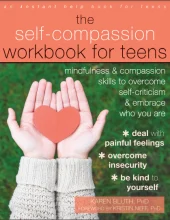Introduction
When your child is dealing with anxiety and resists the idea of therapy, it can leave you feeling unsure about how to best support them. It is important to approach this situation with a lot of care and patience. This guide is designed to offer you steps to help your child handle their anxiety and gradually
become more open to the idea of therapy.
Understanding Anxiety
• Learn about Anxiety: Gain knowledge about anxiety disorders to better understand your child’s experiences.
• Recognise the Signs: Be observant of changes in behaviour that may indicate anxiety, such as trouble sleeping or avoiding activities they used to enjoy.
• Acknowledge Their Feelings: Show your child that their feelings are important and that you are there to listen.
Fostering Communication
• Encourage Open Dialogue: Create an environment where your child feels comfortable sharing their thoughts and feelings.
• Explain the Role of Therapy: Gently discuss how therapy could help them learn to manage their anxiety.
• Involve Your Child in Decisions: Empower your child by involving them in choosing a therapist or eciding on the therapy approach.
Building a Supportive Home Environment
• Model Positive Behaviour: Display healthy coping strategies for dealing with stress and anxiety.
• Create a Calm Space: Keep your home a peaceful place where your child can feel relaxed and secure.
• Encourage Confidence: Encourage activities that make your child feel competent and valued.
Introducing Therapy Gradually
• Set Realistic Expectations: Help your child understand that therapy is a journey and that every small victory is important.
• Routine: Establish a predictable routine that includes therapy sessions.
• Positive Reinforcement: Recognise the efforts your child is making to cope with their anxiety.
Working with Professionals
• Collaborate with Therapists: Work together with therapists to find ways to make therapy more engaging for your child.
• Consider Different Therapy Formats: Consider alternative options like online therapy that might be more appealing to your child.
Additional Strategies
• Home-Based Therapy: Some therapists offer home visits. Having therapy in a familiar and safe environment can sometimes help reduce the anxiety associated with attending sessions.
• Meet the Therapist Informally: If possible, arrange for your child to meet the therapist in a neutral place where they feel comfortable, just for a casual introduction without any pressure of therapy.
• Self-Help Techniques: Teach your child simple techniques like deep breathing and mindfulness.
• Literature and Resources: Offer books and resources that explain anxiety in a way your child can understand.
• Regular Physical Activity: Encourage physical activities which can help reduce symptoms of anxiety.
• Healthy Lifestyle Habits: Support a healthy diet and ensure your child gets enough sleep.
• Creative Outlets: Facilitate creative activities such as art, writing, or music.
• Peer Support: Help your child build supportive friendships.
• Family Therapy: Consider involving the whole family in therapy sessions.
• School Support: Work with your child’s school to provide additional support where needed.
• Professional Development for Parents: Attend workshops to learn more about supporting a child with anxiety.
• Mindfulness and Relaxation Programs: Introduce your child to programs that teach relaxation and mindfulness.
• Animal-Assisted Therapy: Look into therapies that include animals which may be comforting for your child.
• Develop a Worry Time: Establish a time when your child can express all their concerns.
• Create a Safety Plan: Create a plan with your child for those times when they feel extremely anxious.
• Cultural and Spiritual Support: Connect with your community for added support.
• Monitoring Progress: Keep track of your child’s anxiety to better understand and address it.
FREE PDF DOWNLOAD OF A PARENT’S GUIDE TO SUPPORTING AN ANXIOUS CHILD WHO RESISTS THERAPY
 Download the guide as a pdf
Download the guide as a pdf 







